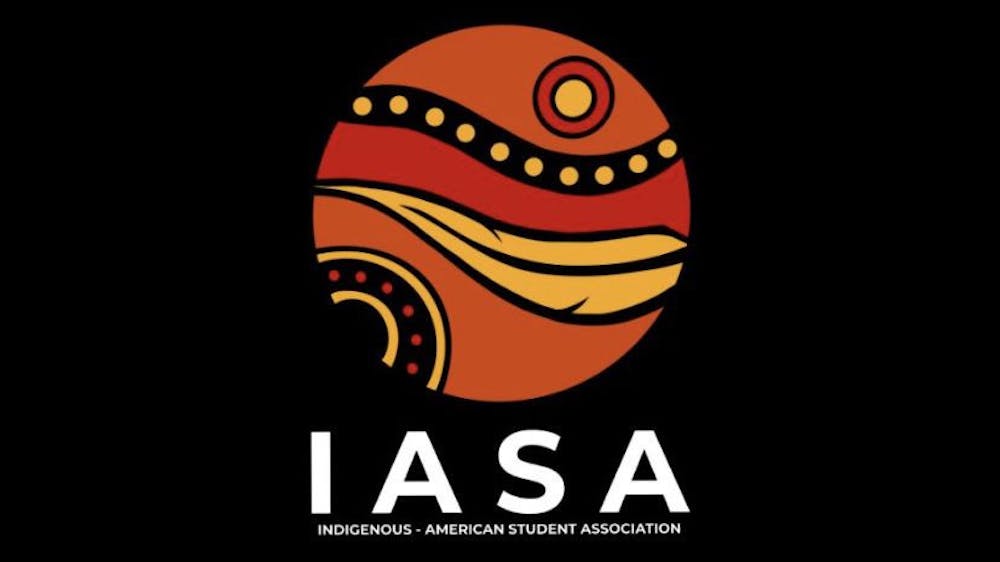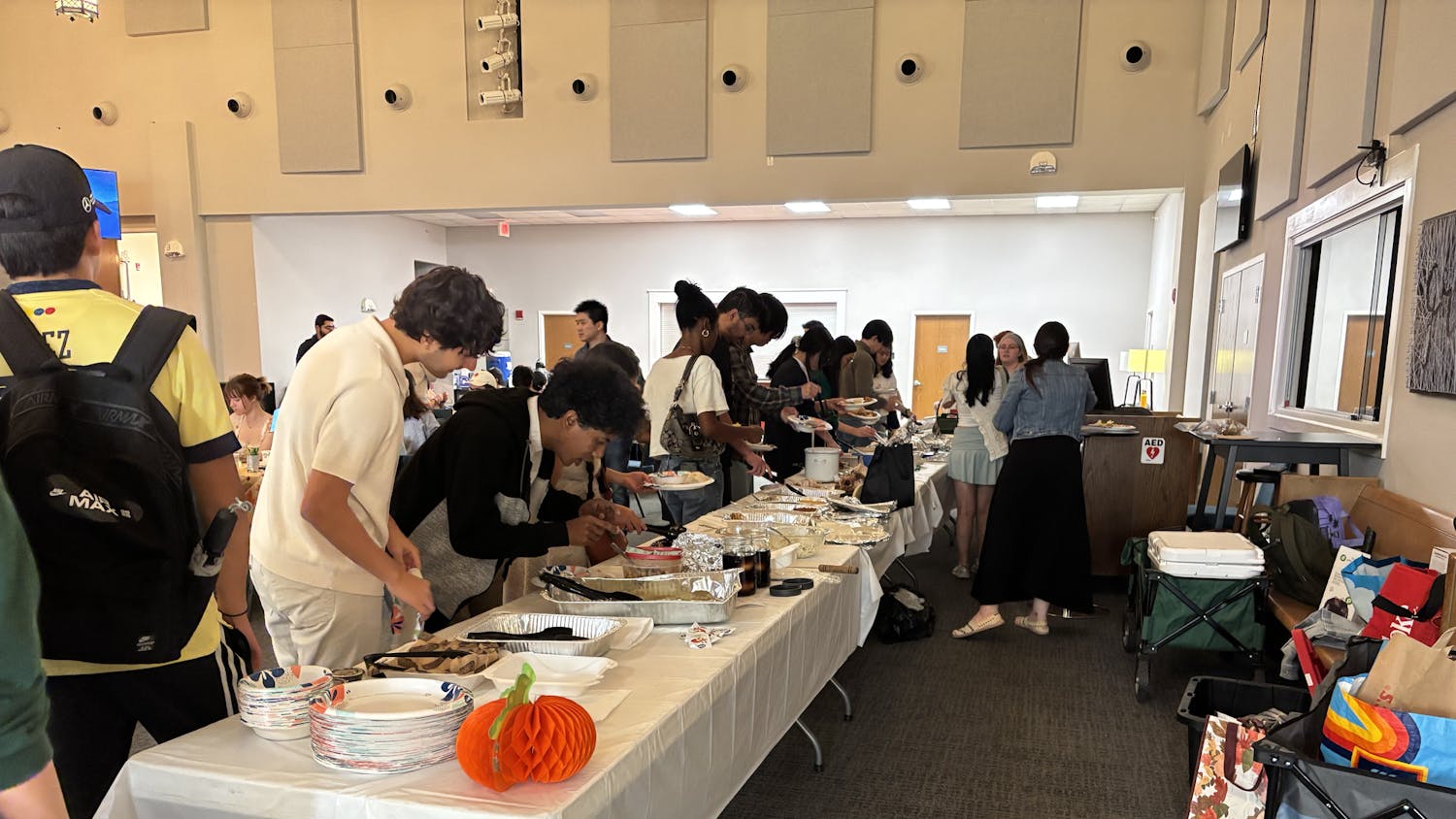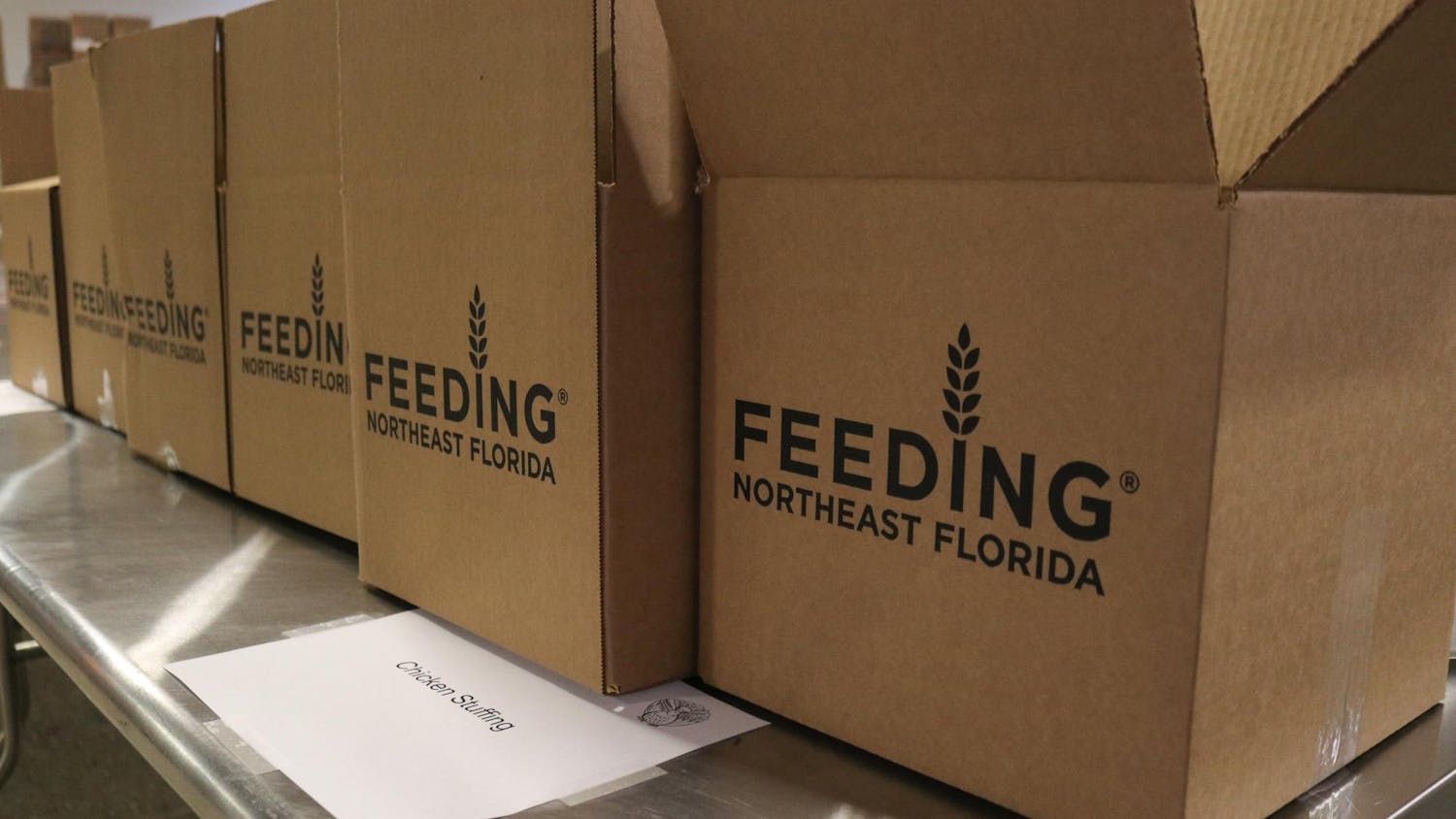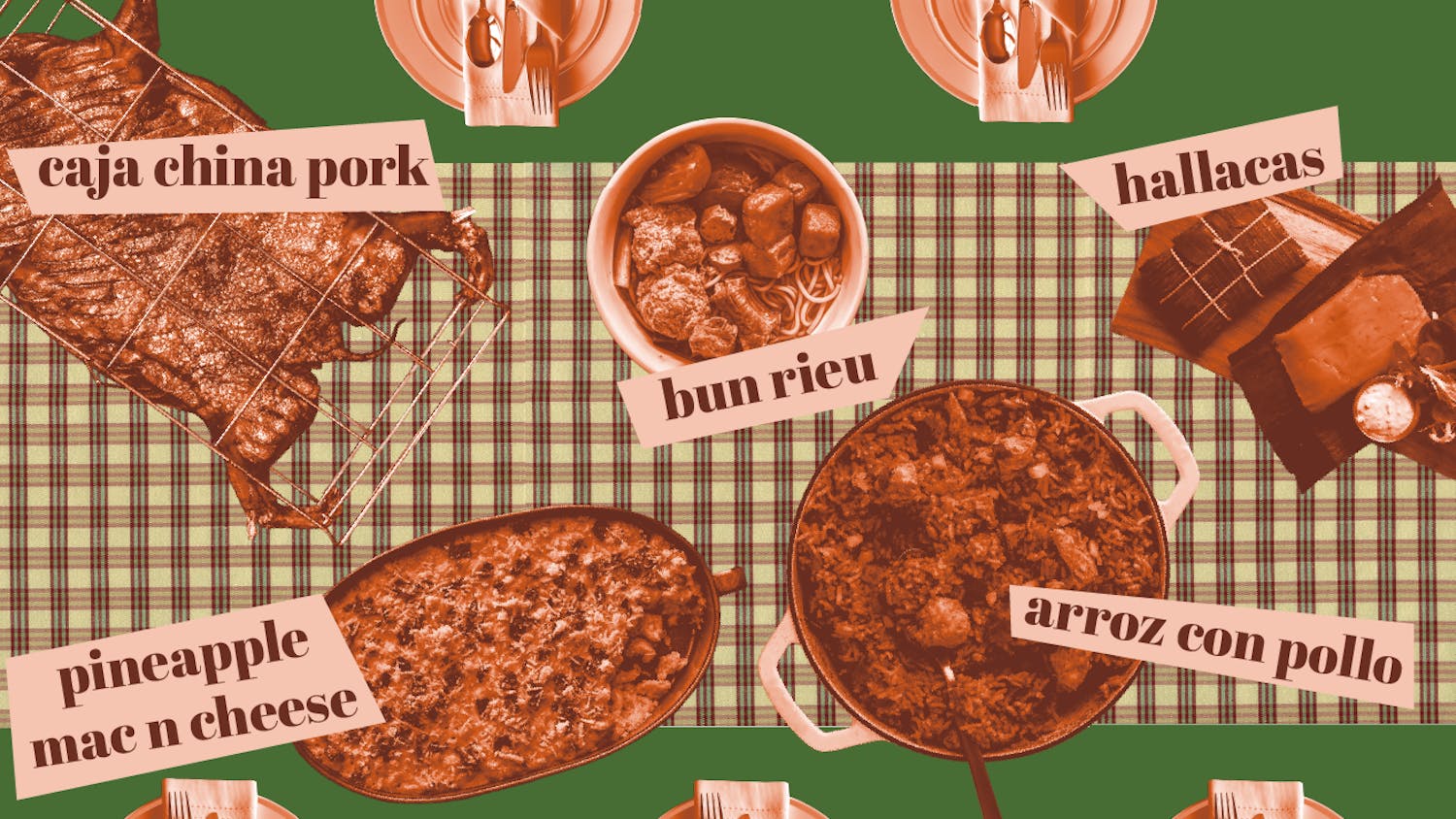Mikaela David-John, member of the Saint Regis Mohawk tribe in Akwesasne, New York, won't celebrate Thanksgiving this year. It does not respect her history identity.
While thousands of UF students gather with their families to celebrate the holiday, other students, including a number of Indigenous American students, do not see the holiday as prideful.
David-John, a 24-year-old UF family, youth and community sciences master’s student said she’s Indigenous on her father’s side of the family. She decided to skip dinner this year.
“I'm all for educating, but I wanted to take a little break that day,” said David-John, who is also vice president of the UF Indigenous-American Student Association.
The misrepresentation of Thanksgiving, which stereotypes Pilgrims and Indigenous people, can create long lasting damage to Native Americans, David-John said. To think Native Americans are no longer part of society leads to the erasure of their history and culture.
Although a three-day feast among Pilgrims and Indigenous people happened, she and members of the IASA said Thanksgiving does not honor Native Americans.
“What we typically learn in school is just about tracing your hand and turkeys and pageants, and it all is in good fun, but it's not — not good fun for Indigenous people,” David-John said.
IASA is asking the UF community to shift the focus of the holiday from an often portrayed as a cheerful European and Indigenous encounter to a celebration of gratitude and harvest.
For this year’s Native American Heritage Month during November, the IASA hosted an online meeting Nov. 18 to educate and prevent the community from falling into stereotypification and misinterpretation of the holiday. The event invited people to be mindful about Native Americans’ history of oppression and ways in which they can take part in the matter.
As of January, 1.72% of UF students identify as American Indian or Alaska Native, according to the UF enrollment page.
Historically, a harvest feast is recorded to have happened over three days in 1621 in what is now Plymouth, Massachusetts, between the Pilgrims, who came from England, and the Wampanoag Native Americans. But the event wasn’t called Thanksgiving until the 1830s, according to the New York Times.
David-John said that, in reality, the celebration marks the beginning of Native Americans having to defend their lands and livelihoods from European settlers, which is the part of history people usually miss.
Years after the harvest celebration, in 1875, the King Philip's War, between Natives and English settlers began. The war left several hundred colonists dead, and thousands of Indians were killed, wounded or sold and enslaved, according to History.
Since 1970, Native Americans have gathered at Cole's Hill in Plymouth, Massachusetts, to celebrate National Day of Mourning as a Thanksgiving counter-celebration. It first happened in response to an attempt to oppress Wampanoag Frank James from delivering a speech that did not please Pilgrims at the 350th feast anniversary.
At the IASA meeting, which about 15 people attended, David-John and Natalia Turkel, a 21-year-old UF environmental science senior and president of the organization, talked about how Thanksgiving history is often portrayed through rose-colored glasses.
Although not a Native American herself, Turkel said she advocates for the celebration and recognition of Native American perspectives — including the decolonization of Thanksgiving.
Turkel said she learned about Thanksgiving at elementary school as a happy ending story. She remembers taking part in plays where some kids would dress up as Native Americans and some as Pilgrims to have a happy, collaborative meal. They never talked about the pain and abuse Native Americans underwent.
“If anything, because it's been so commercialized — and it's been so apparent in our culture — it should be a celebration of your harvest and of your family and of your gratitude, but not of that day,” Turkel said.
Based on her personal experience growing up, Turkel said schools fail to educate students about the presence of Native Americans in today’s society, including the regions where they are located, their customs, beliefs and even clothing styles and architecture.
“There's a huge disconnect between Native American issues because there was no connection for so long,” Turkel said. “And that's wrong.”

Aurora Martínez is a journalism senior and the digital managing editor for The Alligator. When life gives her a break, she loves doing jigsaw puzzles, reading Modern Love stories and spending quality time with friends.






